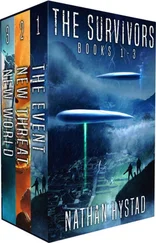He typed up the pages on his mother’s old typewriter, leaving room for illustrations, which he did in crayon and pen. He bound the book in cardboard and blue fabric and, using a ruler to achieve perfectly straight lines, he wrote “The Castle of No Return” on the cover.
And maybe it was the illustrations. Maybe it was the excellent blue binding. Or maybe — he left room in his mind for this possibility — maybe it was the writing itself, the creative deaths, the unity of his vision, that instead of “Prologue” he used the word “Prolegomenon,” which he found in a thesaurus and which he thought sounded awesome. He could not say for sure what swayed Miss Bowles, but swayed she was. He won. The Castle of No Return was read to the whole class and he sat at his desk trying not to burst.
It was the best thing he’d done in his life.
So when his mother came into his bedroom one morning and woke him and asked him, weirdly, “What do you want to be when you grow up?” he still glowed with his literary victory, and so he said, quite sure of himself, “Novelist.”
The light outside was weakly blue. His eyes were still heavy and hazy.
“A novelist?” she said, smiling.
He nodded. Yes, a novelist. He had decided sometime in the night, as he relived his great success. How his classmates roared with pleasure when the princess was saved. Their gratitude, their love. Watching them navigate his story — surprised in the places he meant to surprise them, fooled in the places he meant to fool them — he felt like a god who knew all the answers to the big questions peering down at the mortals who did not. This was a feeling that could sustain him, that could fill him up. Being a novelist, he decided, would make people like him.
“Well,” said his mother, “then you should be a novelist.”
“Okay,” he said, bleary and half awake, still not quite comprehending how deeply strange this was, his mother fully dressed, carrying a suitcase, coming in here at dawn asking about his plans, his future plans, when she had never once asked about this before. But Samuel accepted it and went along with it, like how one accepts the premise of a strange dream whose strangeness only clarifies after it’s over.
“You write your books,” she said. “I’ll read them.”
“Okay.” He wanted to show his mother The Castle of No Return. He’d show her his drawing of the white horse. He’d show her that thing about the bottomless pit.
“I want to tell you something,” she said. And she was oddly formal about this, as if she’d privately practiced it many times. “I’m going away for a while. And I want you to be good while I’m gone.”
“Where are you going?”
“I have to find someone,” she said. “Someone I knew a long time ago.”
“A friend?”
“I suppose,” she said. She put a cold palm on his cheek. “But you don’t have to worry about that. You don’t have to worry about anything. You don’t have to be so scared anymore. That’s what I wanted to tell you. Don’t be scared. Can you do that for me?”
“Is your friend missing?”
“Not really. We’ve just been apart for a long time.”
“Why?”
“Sometimes,” she said, and she paused, and she looked away from him, and her face crumpled.
“Mom?” he said.
“Sometimes you take a wrong turn,” she said. “Sometimes you get lost.”
Samuel started to cry. He did not know why he was crying. He tried to stop it.
She gathered him in her arms and said “You’re so sensitive” and rocked him and he pressed into her soft skin until his whimpering ceased and he wiped his nose.
“Why do you have to go now ?” Samuel said.
“It’s just time, honey.”
“But why?”
“I don’t know how to explain it,” she said. She stared at the ceiling with this hopeless look on her face, then seemed to gather herself. “Have I ever told you about the ghost that looks like a rock?” she said.
“No.”
“My father told me about it. He said you could find it on beaches sometimes back home. It looks like a normal rock, like a little stone covered with green fuzz.”
“How can you tell it’s a ghost?”
“You can’t, unless you take it out to sea. If anyone takes it onto the ocean, it’ll get heavier the farther you travel from shore. And if you’re really far, the ghost will get so heavy it’ll sink your ship. They called it a drowning stone. ”
“Why would it do that?”
“I don’t know. Maybe it’s angry. Maybe something bad happened to it. The point is, it gets too big for you to carry anymore. And the longer you try to carry it, the bigger and heavier it gets. Sometimes it can get inside you and it gets bigger and bigger until it’s too much. You can’t fight it anymore. You just…sink.” She stood up. “Do you understand?”
“I think so,” he said, nodding.
“You will,” she said. “I know you will. Just remember what I told you.”
“Don’t be scared anymore.”
“That’s right.” She leaned over and kissed him on the forehead, held him close to her and seemed to breathe him in. “Now go back to sleep,” she said. “It’ll all be okay. Just remember: Don’t be scared.”
He heard her footsteps disappear down the hall. Heard her wrestling with the suitcase down the stairs. He heard the car start, the garage door open and close. He heard her drive away.
And Samuel tried to obey his mother. He tried to fall back asleep and not feel scared. But this unbearable panic rose up in him and so he got out of bed and ran to his parents’ room and found his father still sleeping, curled with his back to the room.
“Dad,” Samuel said, shaking him. “Wake up.”
Henry squinted at his son. “What do you want?” he said in a sleepy whisper. “What time is it?”
“Mom’s gone,” Samuel said.
Henry lifted a heavy head. “Huh?”
“Mom’s gone.”
His father looked at the empty side of the bed. “Where’d she go?”
“I don’t know. She drove away.”
“She drove ?”
Samuel nodded.
“Okay,” Henry said, and he rubbed his eyes. “Go downstairs. I’ll be there in a minute.”
“She’s gone,” Samuel said.
“I got it. Please go downstairs.”
And Samuel waited in the kitchen for his father until he heard a crash from his parents’ bedroom. He ran upstairs and opened the door and saw his father standing straight and rigid with the reddest face Samuel had ever seen. Faye’s closet door was open, some of her clothes strewn on the floor.
But it wasn’t the clothes Samuel would remember best, nor the crash, nor the broken pieces of a small vase that had been hurled at the wall, apparently with great force. What he would remember clearly, even decades later, was that color on his father’s face: a deep crimson, and not just in the cheeks but all over — neck and forehead and down into his chest. A dangerous-looking color.
“She’s gone,” he said. “And her stuff, it’s all gone. Where did all her stuff go?”
“I saw her leaving with a suitcase,” Samuel said.
“Go to school,” his father said, not looking at him.
“But—”
“Don’t argue.”
“But—”
“Just go!”
Samuel didn’t know what it meant, that his mother was “gone.”
Gone where? Gone how far? When would she come back?
During the journey to school, Samuel felt himself far away from his surroundings, like he was looking at the world through binoculars turned backward — standing at the bus stop, getting on the bus, sitting and looking out the window and not really hearing any of the kids around him, focusing on a water spot on the window glass, the passing landscape beyond all blurry and whizzing indistinctly by. Samuel felt a gathering sense of dread, and narrowing his attention to something very small, like a water spot, seemed to keep the dread, for the moment, at bay. He just needed to get to school. He just needed to talk to Bishop, to tell Bishop what had happened. Bishop, he had decided, would keep him afloat. Bishop would know what to do.
Читать дальше












